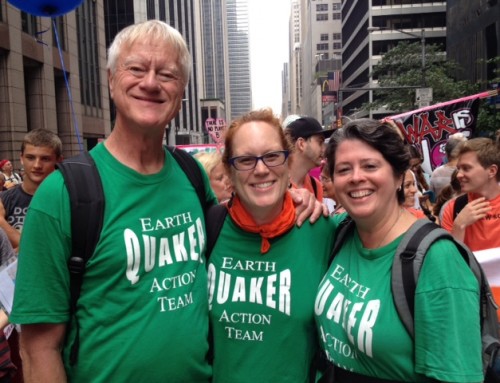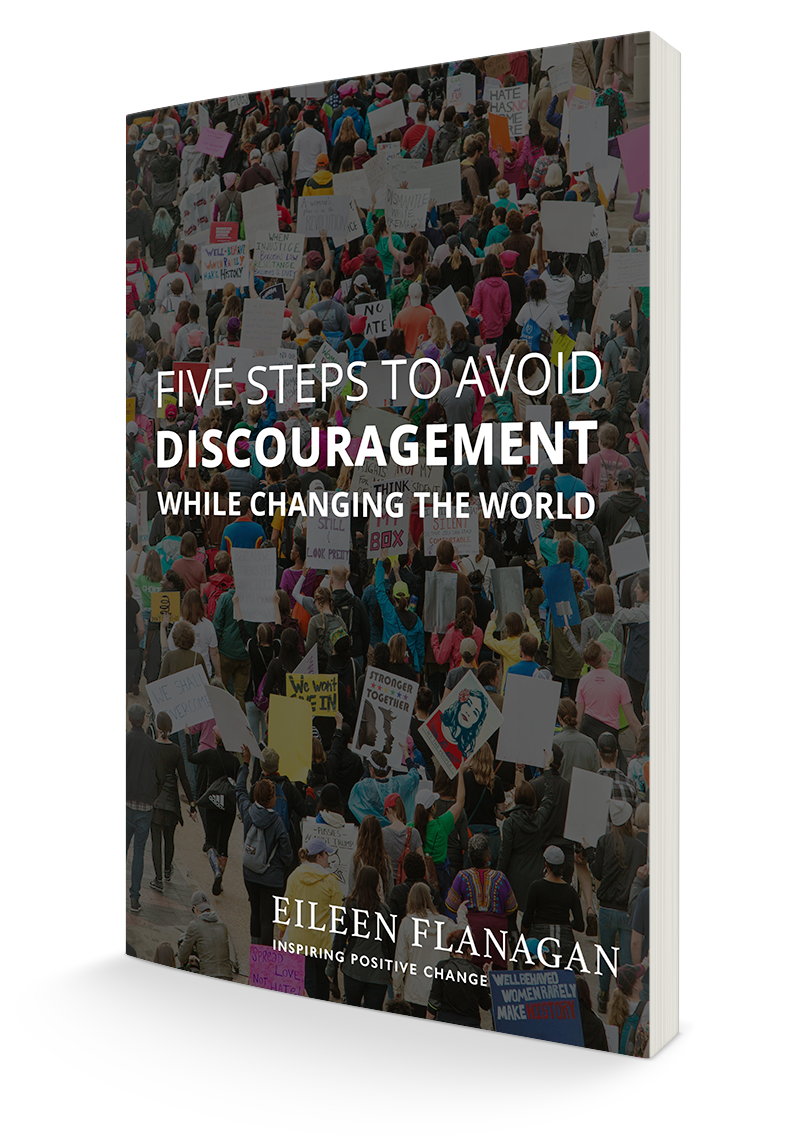Last night I had my first book signing, with a lovely, intimate audience of women. One remarked on their gender at the end and asked if I thought it was a coincidence. I didn’t, though I wasn’t quite sure how to explain it, either. Several were from the same book group, and book groups tend to be mostly female, but that only leads to the question of why book groups are mostly female. It reminded me of an interview I had earlier in the week with David Crumm of Read the Spirit. A man who has written about and read spiritual books for decades, David mentioned at the end of our hour-long conversation that most of the readers of his site and of spiritual books in general are women, yet most of the writers of such books are men. He was happy to help promote a female spiritual writer, pointing out a passage in my book about paying attention to our bodies and our dreams that he thought was a distinctly woman’s voice, though he immediately acknowledged men who have written about those topics, as well.
I’ve been musing over this question of a woman’s voice and whether the word “feminine” would be more accurate, since I believe all people have both masculine and feminine aspects. I think of Thomas Moore, who my husband is reading at the moment, and his assertion that the repression of the divine feminine hurts us all. I think of Walter Hjelt Sullivan, a Quaker who teaches a course at Pendle Hill on using our bodies in discernment, and feel grateful for these men’s voices. Yet I think David is on to something about the way men and women tend to write about spiritual experiences. One of the things that inspired my first book on spirituality and romantic relationships was the fact that the books I was drawn to at that point in my life were mostly written by celibate men, like Thomas Merton, whose ideas touched me, though they seemed abstract, far from my lived experience as a single woman who was longing for marriage and motherhood. I believe several writers have said, “I wrote the books I wanted to read,” and it is certainly true for me, as well.
Much of my writing is about how our spiritual ideas affect how we live every day—our parenting, our relationships, our use of earth’s resources. One of the people I interviewed for The Wisdom to Know the Difference (a Quaker man) wondered what it would be like to live every moment with the awareness of being a branch of a vine, to feel that connected to God. That question is central to me. Living in relationship is part of it, which David also pointed out as something important in women’s spiritual writing. His comment has got me reflecting on how my own writing fits into a broader pattern of women’s writing, and how women’s writing overlaps with and intersects with men’s spiritual writing.
My final question is whether Quakers are any different than other denominations, perhaps less divided by gender, in this regard. I’m not sure, but I raise up the question. My sense is that the readers of this blog are pretty mixed, though I’ve noticed that some posts elicit responses mostly from women (like Cleaning for Company) and a few mostly from men (like the Washington Post link). The book group we started last spring around Brent Bill’s Sacred Compass was mostly but certainly not all female. Perhaps more significant, Quakers have always valued writing about their direct experience of the Teacher—which we have called by many genderless names—rather than abstract theology. A search under “women” on Quaker Books connects me to a rich tradition dating back to the seventeenth century, a tradition that included male and female voices when few other religious groups did. I’m grateful for that tradition, even as I explore my place in it.



I made a reference to the Cleaning for Company piece, it was just by email rather than comment :). I tend to read and smile (but not comment) at posts like that and only chime in when there’s some bit of concrete information I can provide, which might be a more male-like trait.
For what it’s worth, visitors to QuakerQuaker.org are split almost evenly between men and women (51% to 49%). People on it can sign up for "Groups" and I’ve long noticed that the Big Idea groups (e.g., "Plainness and Simplicity") are more popular than the community/lifestyle groups (e.g., Family Life). I do sometimes try to lift up the latter as a way of bringing more balance to the overall site mix.
I think this is generally so – it’s something I remember the novelist Michelle Roberts speaking about, how women’s writing is more tied to the ‘earth’, the everyday, the family. I think you see this in the work of women artists. But there are men, as you mention, who do this as well. One of my all-time favorite writers Parker Palmer beautifully relates spirtual thought to the everyday and to his personal experience.
Thanks, Martin and Beth. It’s interesting to hear about QuakerQuaker’s statistics, and you are right, Martin, that you did comment on that post, which I had forgotten. It would be interesting to know how QQ’s statistics compare with those of other religious groups, just out of curiousity.
Eileen asks why women seem to be the major presence in spiritual dialog, although men are frequent authors.
The essence of a spirit led dialog is truth-telling. That means telling the truth first to our selves, then to those intimate friends around us, and then to the world. Ups! Somewhere in here we also tell our truths to God, as we listen for revelation, divine guidance, or whatever we call that voice.
Sad to say, I believe men (or men in America, or at least me as one man) are brought up with other values that trump truth-telling. We’re supposed to be strong, competent, at least slightly aggressive, always sexually aware. Where does that leave space to be vulnerable, perhaps sometimes lonely, passionate in a not totally erotic way? Where does it leave space for prayer, contemplation, spiritual practice.
I was at a gathering of entrepreneurs (and would be entrepreneurs) recently, where various funding agencies (banks, venture capital funds, angel investors, etc.) told us what they seek in evaluating their possible investments. "Being coachable" was the main criteria — and one in which large numbers of men fell down. Just being able to hear intelligent critique, take it inward, and evolve with measured change, is so hard. Move from this business world to our personal lives, and telling our real stories may be so much harder.
What have women found, in their own voices, and in their ways of supporting each other, that appears to support a more authentic dialog? Whatever it is, I believe that also nurtures interest in sharing about spirituality, and our sense of higher purpose.
Having spoken somewhat to Eileen’s question, I’d like to minimize its importance. Rather than dwell on ways in which we’ve fallen behind, how can we focus on growth ahead? What can authors like Eileen Flanagan, and the people she chronicles, teach us? Inquiring minds do want to know.
Great information. Thanx a lot!